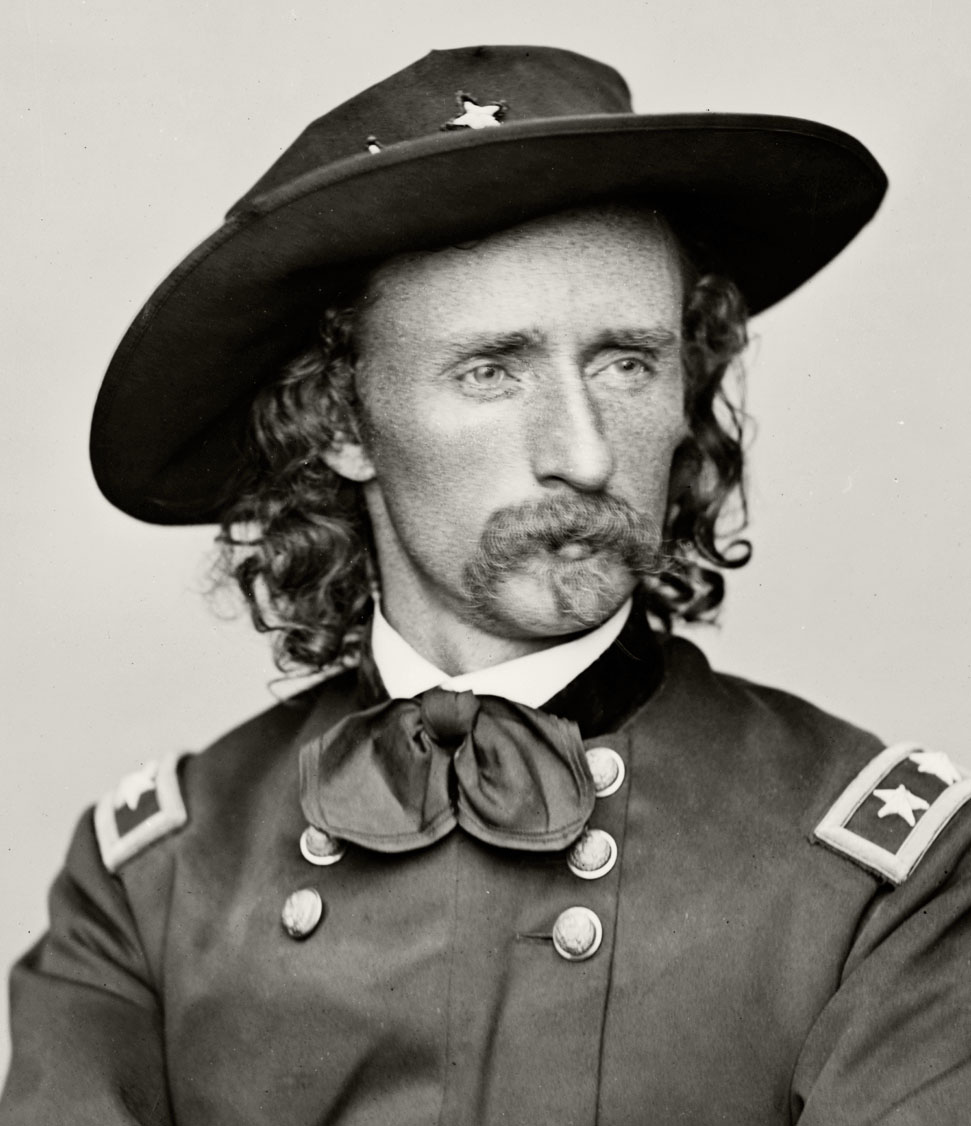It is also partly intended to show images, be they paintings, statues or photographs of the countenaces of men of yore. Because, quite frankly, many men wear the countenances of women these days: smiling, smirking, cooing, rolling their eyes, looking smug etc. It's a sign of the times, and by showing some images of men from the past, I hope to show some modern men why looking surly, frowning and giving hard-ball stares at people is something to do, something to practice.
There will only be a small portion of text in each post, as it seems superfluous to copy and paste an entire encyclopedia entry. If you wish to read the rest of the entry you can read by clicking on the relevant hyperlink.
Here is the first entry, George Custer:
 |
| George Armstrong Custer, 1865 (Aged 26) |
George Armstrong Custer (December 5, 1839 – June 25, 1876) was a United States Army officer and cavalry commander in the American Civil War and the Indian Wars. Raised in Michigan and Ohio, Custer was admitted to West Point in 1858, where he graduated last in his class. However, with the outbreak of the Civil War, all potential officers were needed, and Custer was called to serve with the Union Army.
Custer developed a strong reputation during the Civil War. He fought in the first major engagement, the First Battle of Bull Run. His association with several important officers helped his career, as did his success as a highly effective cavalry commander. Custer was eventually promoted to the temporary rank (brevet) of major general. (At war's end, he reverted to his permanent rank of captain.) At the conclusion of the Appomattox Campaign, in which he and his troops played a decisive role, Custer was on hand at General Robert E. Lee's surrender.
After the Civil War, Custer was dispatched to the west to fight in the Indian Wars. His disastrous final battle overshadowed his prior achievements. Custer and all the men with him were killed at the Battle of the Little Bighorn in 1876, fighting against a coalition of Native American tribes in a battle that has come to be popularly known in American history as "Custer's Last Stand".
Source: http://en.wikipedia.org/wiki/George_Armstrong_Custer
No comments:
Post a Comment